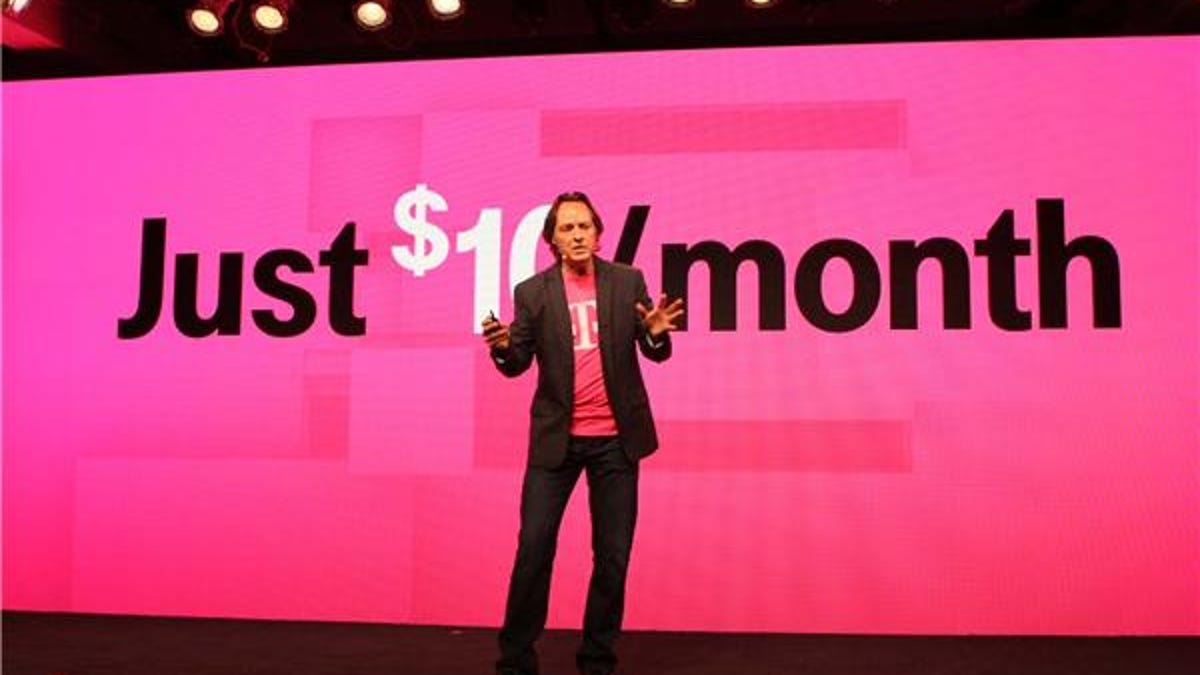T-Mobile scolded for ad campaign against AT&T
The National Advertising Division calls T-Mobile's claim of more bandwidth than AT&T "flawed" and asks the carrier to either modify or stop using it and several other claims.

T-Mobile may have gone too far with its claims against AT&T.
The National Advertising Division has rebuked T-Mobile for several statements made in its advertising campaign, and has issued a statement calling for the ads to be pulled or changed.
Under CEO John Legere, T-Mobile has grown aggressive in needling its larger competitors. T-Mobile is hoping the attention it generates will result in customers leaving the much larger Verizon Wireless and AT&T. AT&T, in particular, has been a favorite target because its customers can easily bring their phones over to the T-Mobile network.
But T-Mobile is making claims that it can't back up, according to the NAD, which is the investigative unit of the advertising industry's system of self-regulation, which is administered by the Council of Better Business Bureaus.
T-Mobile downplayed the calls for change, calling them "very minor," and said it would consider the NAD's recommendations.
"NAD's findings are a validation of our marketing approach," Chief Marketing Officer Mike Sievert said in a statement. "In fact, today's NAD findings won't result in any substantial changes to our marketing claims."
AT&T declined to comment.
The NAD had the biggest problem with T-Mobile's claim that it offered 50 percent more bandwidth than AT&T. The claim was based on a look at T-Mobile and AT&T's HSPA networks, but ignored AT&T's faster LTE network. The NAD called the analysis "flawed," and said there was insufficient evidence that AT&T's combined LTE and HSPA networks were more congested and slower than T-Mobile's network.
The NAD recommended that T-Mobile modify any claims to disclose where it may have an edge, providing more specific information on location, situations, and even types of phones.
T-Mobile was also asked to modify or cease using its claim that it had the "most advanced technology" and "faster 4G service." It was also asked to stop using coverage maps in its 4G or 4G LTE coverage claims.
The NAD also asked T-Mobile to pull or modify its "call quality" claim, which the NAD called "overly broad," and suggested the more narrowly defined "audio or voice quality."
Updated at 11:04 a.m. and 12:35 p.m. PT: to include a comment from T-Mobile and to add the NAD's additional suggestion to modify the claims.

